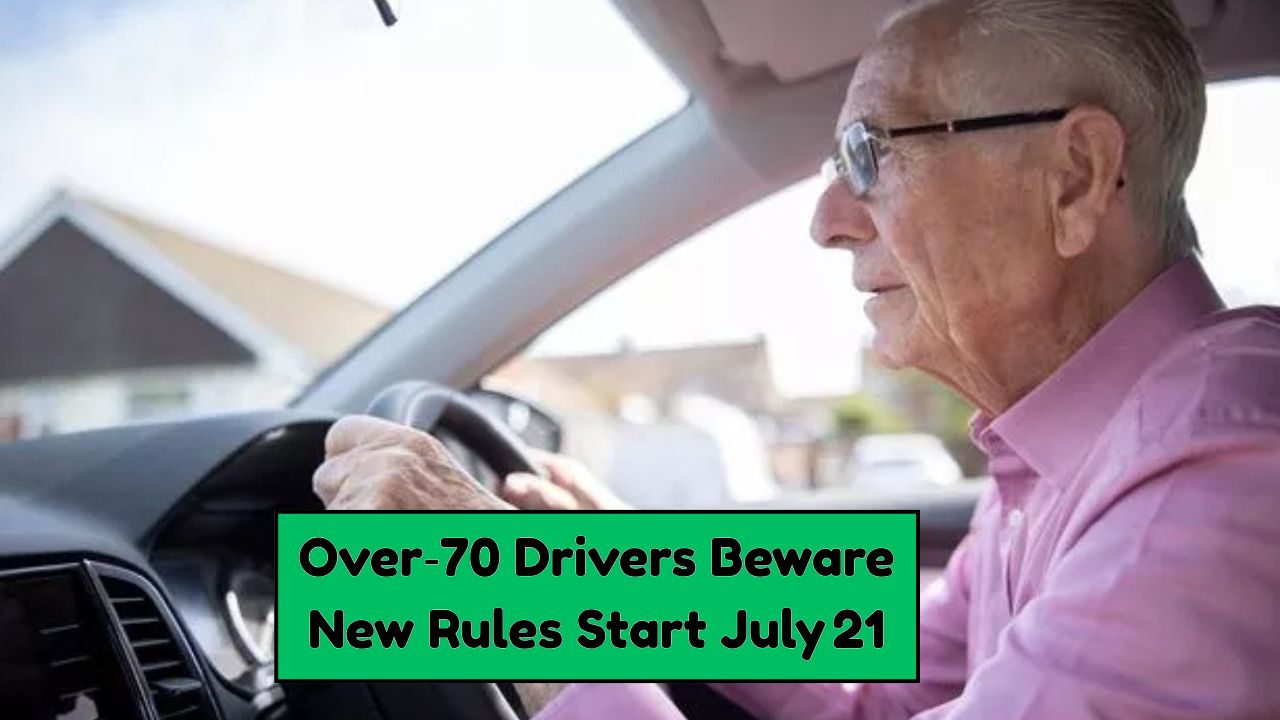New Driving Rules – From July 21, 2025, new driving regulations specifically aimed at Australians aged 70 and above will officially take effect across several states and territories. This initiative comes as part of a nationwide road safety strategy to ensure that elderly drivers remain fit to drive and that public roads stay safe for everyone. With Australia’s ageing population growing rapidly, the government has decided to implement stricter guidelines focusing on medical fitness, regular assessments, and license renewal conditions for senior drivers. The changes have triggered a mixed response, with some praising the proactive safety measures while others view it as discriminatory or burdensome. Nonetheless, understanding the new rules, who they apply to, and how to comply with them is critical for all affected Australians, especially seniors who wish to maintain their independence. Below, we break down the new rules, eligibility criteria, medical exam requirements, and key preparations that older drivers must consider to stay legally and safely on the road.
New Driving Rules for Seniors from July 21, 2025
Australians aged 70 and above will now face updated legal requirements for holding a driver’s license. These changes vary slightly by state but follow a national framework.
- Medical fitness certificates now mandatory annually for drivers aged 75+
- Vision tests required for all drivers aged 70+
- Conditional licenses may apply for those with cognitive impairments
- Practical driving assessments introduced for high-risk profiles
- Compulsory reporting of age-related medical conditions to authorities
- Carers or family may now be required to co-sign medical fitness forms
- Renewal cycles shortened to 1 year for seniors above 80
- New educational materials issued for safer senior driving
Annual Medical Check-Ups for Drivers Over 70
One of the major requirements of the new regulations is mandatory medical clearance.
- Drivers aged 70–74 need a medical check every 2 years
- Drivers aged 75+ require yearly health assessments
- General practitioners will assess cognitive and physical ability
- Specialists may be consulted for complex health issues
- Reports must be submitted directly to licensing authorities
- Unfit drivers may be asked to surrender their licenses
- Conditional licenses may restrict driving times or distances
Who Is Affected and How the States Differ
While the national framework sets the baseline, states like NSW, Victoria, Queensland, and WA have added state-specific clauses.
| State/Territory | Age Rule Starts | Medical Certificate Required | Driving Test Required | Renewal Cycle |
|---|---|---|---|---|
| NSW | Age 75 | Every year from 75 | Practical at 85 | 1 year |
| Victoria | Age 70 | From 75 every year | On GP recommendation | 3 years max |
| Queensland | Age 75 | Annual certificate needed | No mandatory test yet | 1 year |
| WA | Age 80 | Annual after 80 | Only for high-risk | 1 year |
| SA | Age 75 | Annual GP check | Practical if advised | 1-3 years |
| Tasmania | Age 75 | Required every 13 months | If medically suggested | 1 year |
| ACT | Age 75 | Mandatory yearly | No routine driving test | 1 year |
| NT | Age 75 | Annual from age 75 | Test if doctor suggests | 1-3 years |
Differences in Medical Assessment Forms and Criteria
States may provide different formats and guidelines for medical evaluations.
- NSW requires a downloadable “Fitness to Drive” PDF signed by the doctor
- Queensland integrates it into the “Driver Health Assessment” form
- Victoria encourages electronic submission via VicRoads portal
- SA and WA offer an online dashboard for uploading test results
- In some states, GP reports are automatically synced with the licensing database
Key Preparations for Seniors Before July 21 Deadline
With the new rules kicking in, seniors are advised to take proactive steps to ensure they remain compliant and road-safe.
- Book an appointment with your GP by early July
- Get your eyes tested at an accredited optometrist
- Inform your doctor of any medications or chronic issues
- Keep a printed copy of your latest medical form
- Notify your state transport department if your condition changes
- Begin driving at lower-risk times like mid-morning or midday
- Enroll in senior driving refresher programs offered locally
Free Senior Refresher Courses & Safety Workshops
Many states are offering free courses for elderly drivers to boost confidence and renew awareness.
- NSW: RMS senior driver workshops across metro & regional areas
- VIC: VicRoads-funded “Older Driver Review” sessions
- QLD: Safe Mobility for Seniors program with practice tests
- WA: RAC Senior Driver Toolkit offered through clinics
- SA: Community-led sessions in partnership with SAPOL
Financial and Legal Consequences of Non-Compliance
Ignoring the new rules may result in serious consequences ranging from fines to license suspension.
| Offence | Penalty Amount | Additional Consequences |
|---|---|---|
| Driving without valid medical | $450–$1,000 | License suspension for 3–6 months |
| Refusal to submit medical form | $650 | Potential permanent disqualification |
| Driving with revoked license | Up to $2,200 | Court appearance, potential jail |
| Providing false medical info | $900 | Criminal charges, permanent record |
| Ignoring driving restrictions | $330 | Demerit points, license review |
| Missing annual check-up | Varies | Auto suspension until resolved |
| Driving after doctor deems unfit | Immediate cancel | Mandatory vehicle confiscation |
Rights to Appeal and Medical Review Tribunals
If a senior disagrees with a medical decision or license cancellation, appeal options exist.
- File for review with the state’s Medical Review Board
- Submit a secondary independent medical assessment
- Lodge an appeal through the State Civil and Administrative Tribunal
- Request conditional driving terms rather than full cancellation
Tips for Safe Driving Beyond Age 70
Maintaining a strong driving record and physical wellness can help extend driving ability well into later years.
- Avoid driving during peak traffic hours
- Increase following distance and reduce speed
- Consider using modern cars with lane assist & blind spot alerts
- Always carry glasses, medical info, and ID while driving
- Install GPS systems with voice prompts for easier navigation
- Never drive while tired or under medication that induces drowsiness
Important Warning Signs That Indicate It’s Time to Stop Driving
Some seniors may need to reconsider their driving status entirely.
- Frequent close calls or minor accidents
- Getting lost on familiar routes
- Slow reaction time at traffic signals
- Difficulty seeing at night or in rain
- Family or doctor expresses concern
Exploring Alternative Transport Options
For seniors who must stop driving, several transport support options are available.
- Local council-run community buses
- Pensioner taxi vouchers
- Seniors card public transport concessions
- Volunteer driver programs for medical appointments
- Rideshare services offering senior-friendly assistance
Resources and Support Helplines for Elderly Drivers
Staying informed is key. Here’s where to get reliable information.
| Service Name | Contact Info | Services Offered |
|---|---|---|
| National Road Safety Line | 1800 123 456 | Road rule clarifications |
| MyAgedCare | 1800 200 422 | Driving alternatives, aged transport help |
| VicRoads Seniors Team | 1300 360 745 | Renewals, medical submissions |
| RMS NSW Seniors Program | 13 22 13 | Book assessments, free courses |
| Transport QLD Helpline | 13 23 80 | Medical certificate upload support |
| Council on the Ageing | (03) 9655 2100 | Advocacy for senior rights |
Australians aged 70 and above must act quickly to adapt to the new driving rules set to take effect from July 21, 2025. The updated regulations emphasize safety, medical fitness, and proactive responsibility for older drivers. While the rules may feel restrictive to some, they ultimately aim to balance the independence of senior citizens with the safety of all road users. Staying informed, organized, and prepared will be essential in navigating this new driving chapter smoothly.
FAQs of New Driving Rules
Q1: Is a driving test mandatory for all Australians aged 70+ now?
No, driving tests are not mandatory for all. Tests are generally required for high-risk individuals or at certain milestone ages like 85, depending on the state.
Q2: What happens if I fail the medical exam?
Your license may be suspended or restricted. You can appeal or request a conditional license.
Q3: Will the new rules affect motorcycle or heavy vehicle licenses too?
Yes, in many cases the rules extend to all license classes held by the individual.
Q4: Can a family member submit the documents on behalf of a senior?
Yes, most states allow carers or legal representatives to assist with submissions, as long as forms are signed.
Q5: Are these rules only for city drivers or also for rural seniors?
They apply nationwide, including regional and rural areas. In fact, some rural councils may offer mobile testing services for convenience.











